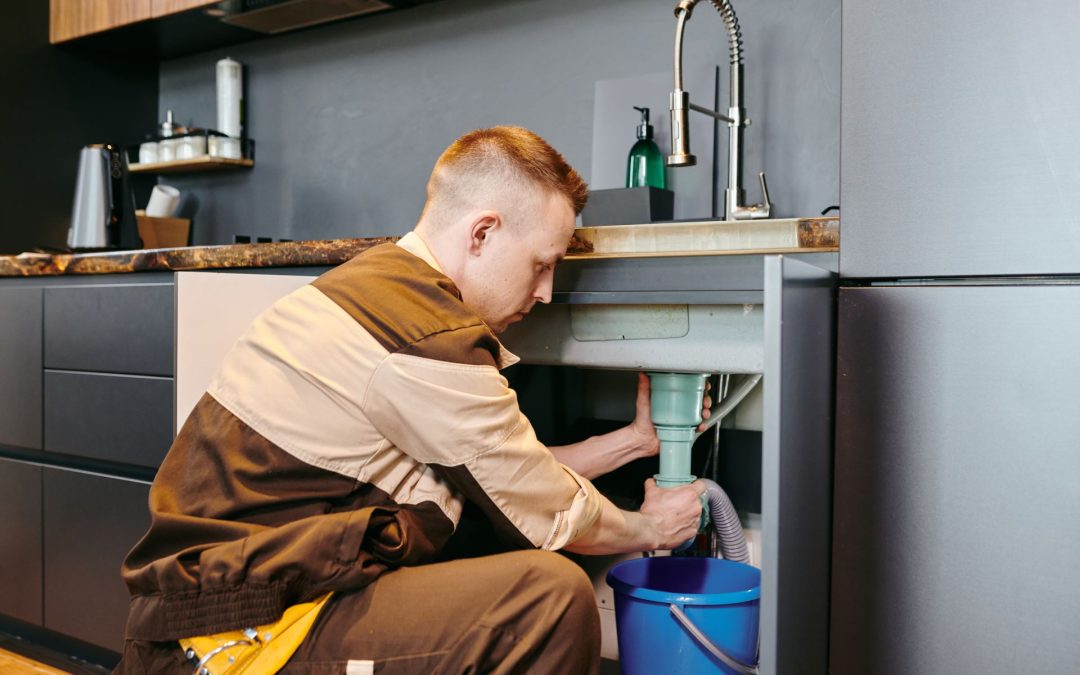When we think about indoor air quality in commercial buildings, our minds often gravitate toward factors like ventilation and filtration systems. However, the role of plumbing in maintaining and even improving indoor air quality is frequently underestimated. In facilities where water systems are extensively used, the health of the plumbing system can significantly influence the overall air quality. This aspect of building maintenance is crucial yet often overlooked, which can lead to unintended consequences for both the occupants and the building itself.
Understanding the link between the plumbing systems and air quality is the first step towards creating healthier environments. From the pipes that carry water into and out of the building to the vents that regulate airflow, every component of the plumbing system has a role. When these systems malfunction, the effects can quickly spread, impacting not just the building’s operational efficiency but also the health of its occupants. This is why at Plumb Krazy Plumbing, we emphasize the importance of meticulous plumbing maintenance as a key factor in ensuring good indoor air quality.
With today’s heightened awareness of health and environmental standards, ensuring that all aspects of a building’s infrastructure work harmoniously is more important than ever. This article delves deep into how plumbing directly affects indoor air quality and what measures can be implemented to safeguard and enhance the breathing environments within our commercial spaces.
Understanding the Connection Between Plumbing and Indoor Air Quality
One might not readily see the connection between plumbing and indoor air quality, but the relationship is more significant than it appears. A key factor is the trap seals in your plumbing fixtures — those U-shaped pipes under sinks that hold water to prevent sewer gases from entering the building. When these traps dry out, perhaps due to infrequent use or poor maintenance, harmful gases have a clear path into the indoor environment. Additionally, any leaks in the plumbing system can lead to increased humidity levels, which, in turn, can accelerate mold growth on walls and ceilings. This mold not only deteriorates air quality but also poses health risks to the building occupants.
Moreover, our plumbing systems are often interconnected with HVAC systems, meaning any contaminants present in the plumbing, such as Legionella bacteria, can potentially be spread through the air conditioning units. This is particularly concerning in commercial spaces like hotels or offices where the health and well-being of a large number of people could be at stake. That’s why it’s crucial for us to keep the integrity of plumbing systems intact, conducting regular checks and immediate repairs whenever necessary to ensure a healthy indoor air environment.
Impact of Ventilation Systems on Air Circulation and Quality
Ventilation systems play a pivotal role in managing air quality in any commercial building. These systems are often directly connected to the plumbing installations, particularly in large buildings where HVAC units rely on water cooling towers. Efficient ventilation aids in dispersing or diluting contaminated air and reducing humidity levels, which are crucial for preventing mold proliferation and minimizing the presence of air pollutants.
However, the effectiveness of a ventilation system is heavily dependent on the condition of the plumbing system it’s linked with. For instance, a malfunctioning cooling tower due to poor plumbing maintenance can lead to inadequate air filtration, allowing biological contaminants from stagnant water to circulate through the air vents. Conversely, well-maintained pipes and fixtures ensure that the HVAC systems run efficiently, enhancing the overall air circulation and reducing potential air quality issues. Regular maintenance checks not only extend the lifespan of these crucial systems but also enhance the health quality indoors by preventing any cross-contamination between the plumbing and ventilation systems. Such proactive measures are crucial in maintaining a safe and healthy air environment for everyone in the building.
Common Plumbing Issues and Their Influence on the Indoor Environment
Various common plumbing problems can directly impact the indoor environment of a commercial space, affecting the air quality and the comfort of occupants. For instance, clogged drains and toilets can lead to an accumulation of organic matter, which decomposes and releases unpleasant odors and harmful gases into the air. These issues not only create an unwelcoming environment but also pose health risks, particularly in enclosed spaces without proper ventilation.
Moreover, leaky pipes can cause moisture problems, which are ideal for mold and mildew growth. These fungi release spores into the air, which can exacerbate allergies, respiratory problems, and other health concerns for those within the building. Ensuring that these issues are addressed quickly not only preserves the structural integrity of the building but also maintains a healthier indoor atmosphere.
Preventive Measures to Enhance Air Quality Through Plumbing Maintenance
To ensure that plumbing issues do not negatively affect the indoor air quality, we take several preventive measures. Regular inspections and maintenance are crucial. By routinely checking the plumbing system for any leaks, clogs, or malfunctions, we can address issues before they escalate into major problems. This includes cleaning drains and pipes to discourage mold growth and fixing any leaks to prevent water damage and the associated moisture issues.
In addition, installing high-quality ventilation systems connected to the plumbing can significantly mitigate any risks of poor air quality. These systems help maintain an adequate flow of fresh air, reducing the concentration of any airborne contaminants that might originate from the plumbing system. By integrating these preventive maintenance strategies, we ensure that our commercial spaces are not only safe and comfortable but also uphold high standards of air quality.
Conclusion
The role of plumbing in maintaining indoor air quality is undeniable. Issues such as common plumbing problems like leaks and clogs can have a wider impact on the health and safety of building occupants. By understanding these connections and implementing robust preventive maintenance measures, we can significantly enhance the indoor environments of commercial properties.
At Plumb Krazy Plumbing, we are committed to ensuring the integrity of your commercial building’s plumbing system, recognizing its critical role in preserving indoor air quality. If you are looking for trusted commercial plumbing contractors to maintain or upgrade your plumbing systems, consider giving us a call. Let us help you create a healthier, more comfortable environment for everyone in your building.

